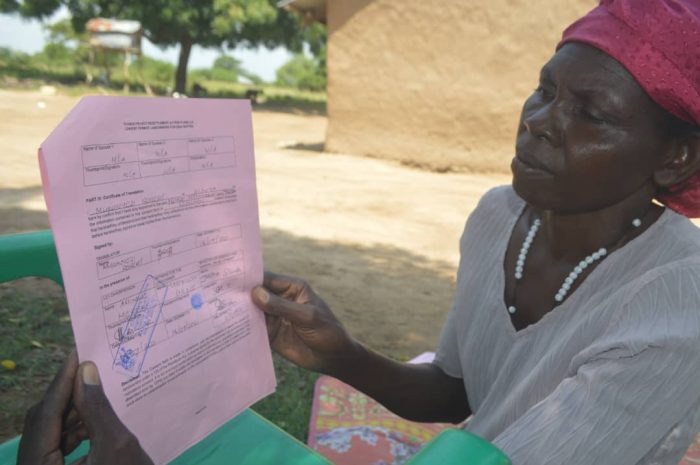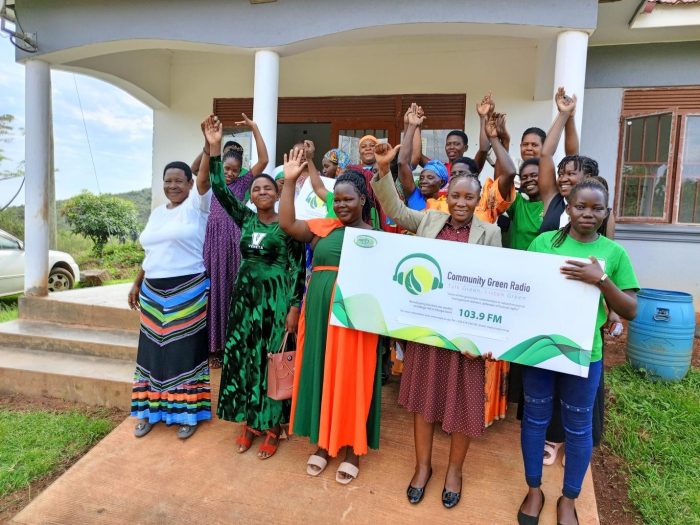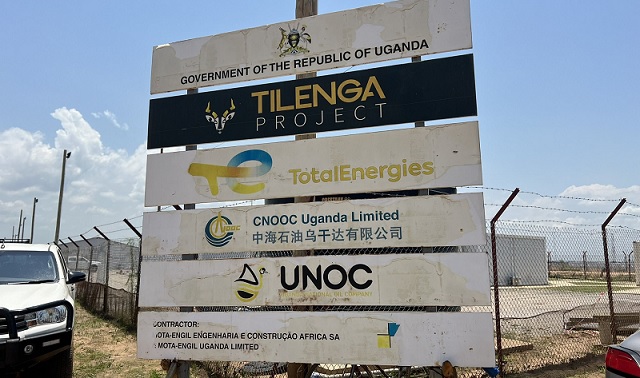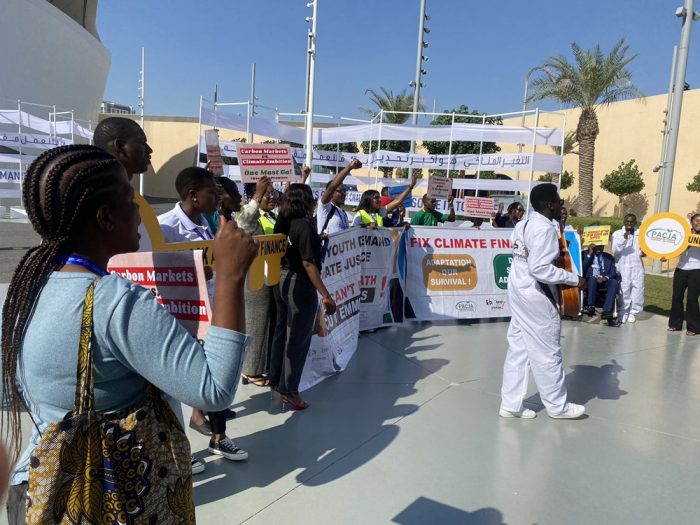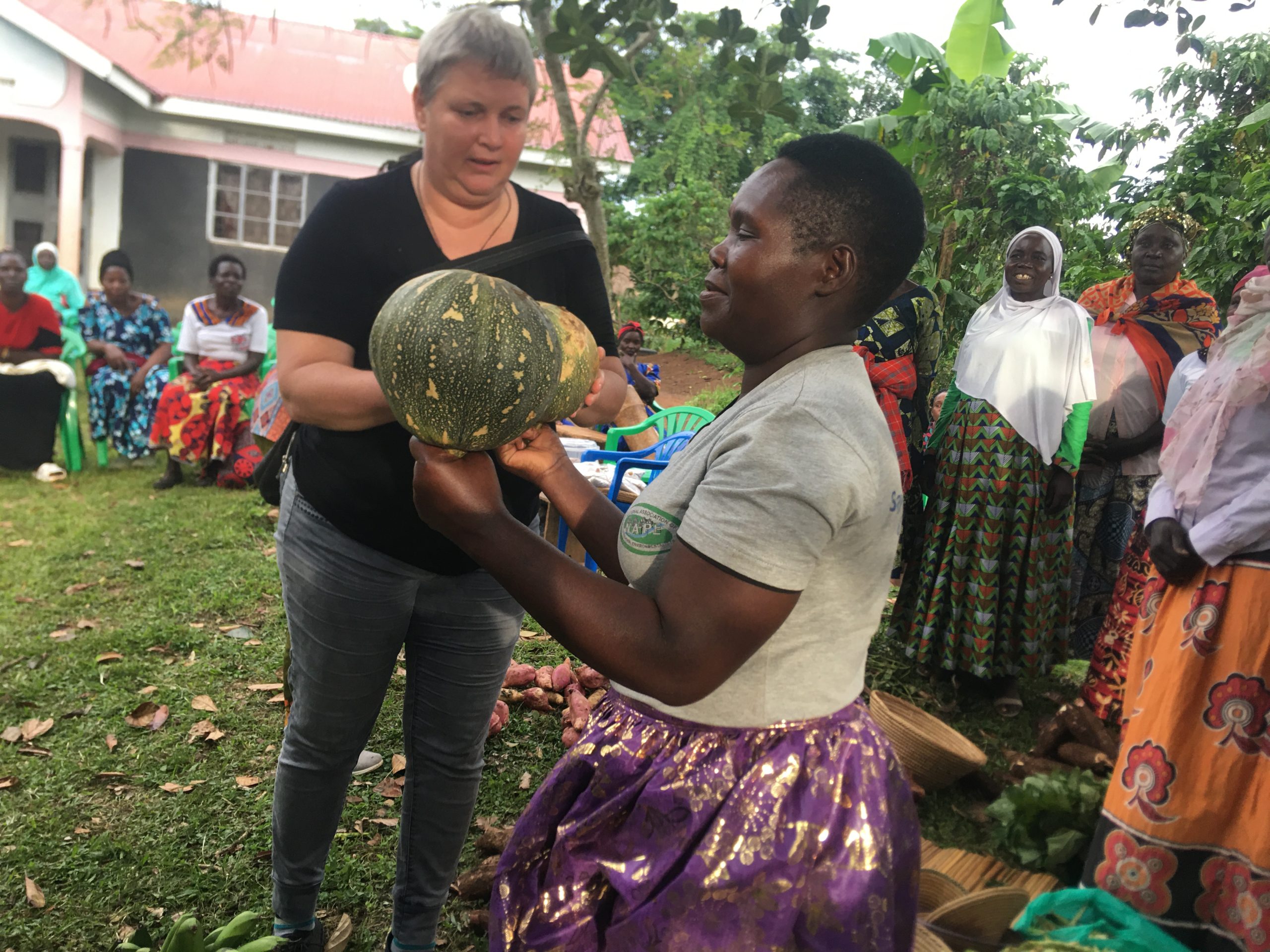
By Precious Naturinda
The German Member of Parliament, Ms.Cornelia Mohring has expressed concern over human rights violations faced by Uganda’s oil host communities amidst the ongoing oil and gas activities in the Albertine region.
During her visit in the region to have a deeper understanding of the challenges faced by the oil host communities on 20th and 22nd May, Cornelia said she is aware that the capitalistic foreign actors involved in the oil and gas extractives are the ones violating the rights of local communities and pledged her total support. She also commended the communities’ efforts to build collective power and fight against the injustices.
“The issues faced by local communities in Uganda due to oil are the topics of discussion back in German parliament. I am aware that European corporate companies including those from Germany are the ones involved in human rights violations. This is a reason why I have come to Uganda to interface with affected communities and have a deeper understanding of the issues. I am also happy that you are not relenting; you are instead coming up together to find solutions especially women,” said Cornelia while meeting the communities.
Cornelia was on a visit to Uganda on invitation of the Katrin Voss, the Director for ROSA Luxemburg Foundation for East Africa. They were on a mission to visit ROSA supported projects and communities through National Association of Professional Environmentalists (NAPE).
Katrin and Cornelia that were led by Samuel Kasirye, the Rosa Program Officer visited NAPE’s Community Green Radio offices in Kiboga where they met staff and radio listeners club members and communities affected by oil and gas activities in Hoima and Buliisa. Apart from sharing stories of resistance against the human rights violations, the communities treated the visitors to food exhibitions to showcase their efforts in promoting growing of indigenous food to promote food sovereignty
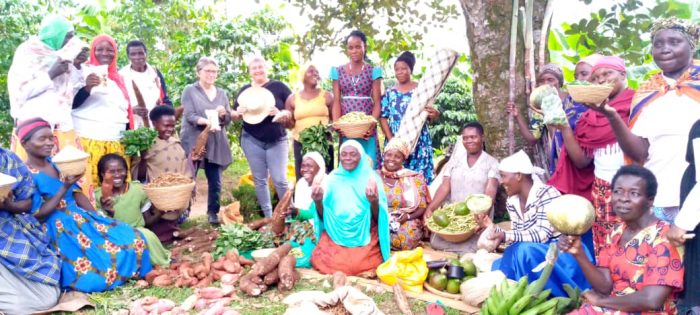
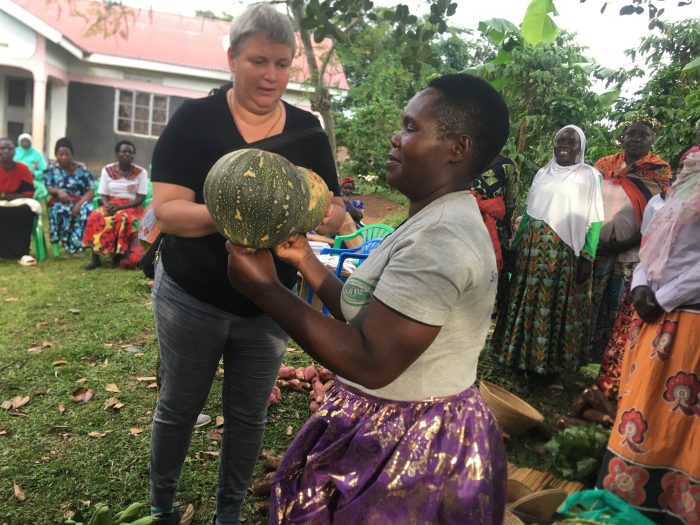
During the meeting at NAPE’s Community Green Radio, the communities shared how Community Green Radio has offered a platform for discussing the plight of people affected by oil development, putting women at the Centre of fighting against gender based inequalities and promoting food security.
“The radio has played a big role in sensitizing the communities about their land rights and advocating for fair compensation for communities affected by the East African Crude Oil Pipeline (EACOP). The group members have been able to participate in NAPE-initiated exchange visits with other affected members in Hoima and Kikuube and have been able to learn a lot from them especially learning more on how to deal with poor compensation, more knowledge on land related issue, improving livelihoods and championing the demand for their rights and entitlements,” said Asuman Ssembatya, a member of Nabidondolo listeners club in Kyankwanzi district.
Anamary Kityo, member of Kikajjo listeners club in Kyankwanzi district said they have had an opportunity to have their voices amplified by Community Green radio and have been sensitized on their rights to land, fighting against gender based violence and promoting food security at house hold level.
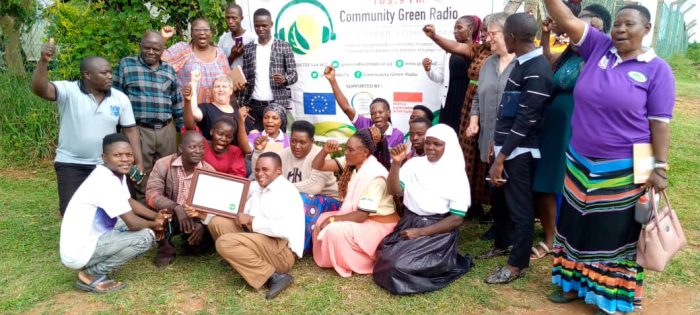
In Hoima and Buliisa districts, the communities shared how they have been empowered under the NAPE sustainability school approach to mobilize communities and hold their leaders accountable and stand together in solidarity to challenge the oil and gas induced human rights violations.
Alice Kazimura, the Director for Kakindo Women’s Integrated Development Association (KAWIDA) in Buliisa district said the district has become a hub of industrialization as a result of oil boom which has in turn led to land conflicts; increased gender based violence and increased food insecurity. She said the communities with support from NAPE have played a big role in sensitizing communities about the challenges and finding solutions.
She said they have been at the forefront of fighting for fair compensation, land rights and women empowerment thanking NAPE for spearheading the struggle.
“At first people were poorly compensated but with continuous advocacy, the compensation improved with better housing units. Women have been empowered to speak and are fighting for their land rights and ending gender based violence,” she said.
Kiiza Gorreti from Kigwera Sub County, a single mother of three said, “Since the discovery of oil and gas women have faced challenges of gender based violence where men have taken the compensation money and used it to marry other women, land rights violations and family break ups. The oil Central Processing Facility (CPF) covered 5 villages which women were using to collect firewood, building materials for their grass thatched houses and grazing. However, women have been empowered to speak up through the sustainability school and we are proud that Green Radio offers us free and safe space where we air our views.”
Katrin said she is happy that the communities especially women are aware of the challenges and also taking swift efforts to solve the problems. She applauded them for taking a stance in promoting food sovereignty, fighting against gender based violence and promoting women’s rights. She noted that she will continue to support such efforts to the best of her ability.
The oil discovery and subsequent oil developments in Uganda was initially welcomed with anxiety, anticipation and optimism by not only the government but also the oil- host communities, with flares of tapping wealth. President Yoweri Kaguta Museveni has been outspoken in his support for oil production, which he says will transform Uganda to a middle income status and has continuously urged the local communities to tap into oil opportunities.
But the tales of oil host communities reflect the fading hopes as the oil activities continue to be marred by human rights violations. Issues of displacements of people from their land to pave way for oil related infrastructure with little or no compensation, destruction of sensitive ecosystems, increased land grabbing, increased human-wildlife conflict, food insecurity and gender-based violence dominate the encounter with oil host communities in the oil region.
Challenging the violations require transfer of power from the dominant and minority groups- the state and its development agencies to the poor and marginalized groups. Because of this, National Association of Professional Environmentalists (NAPE) with support from Rosa Luxemburg Foundation for East Africa has been mobilizing communities affected by oil and bringing them together to share and discuss their challenges with the view of getting the solution under the sustainability school and the Community Green approaches since 2012.
Rajab Bwengye, the Sustainability School Manager and Community Green Radio at NAPE, said the organization is working with the affected communities to resist the human rights violations and as a result, many communities are standing up to protect their ecosystems and their livelihoods. He said this, however, needs continuous financial support noting that NAPE’s new strategy in the coming years is building a knowledge base where these stories of resistance from the communities are amplified among regional and international stakeholders so that those that are responsible for the abuses are held accountable.
ENDS//

